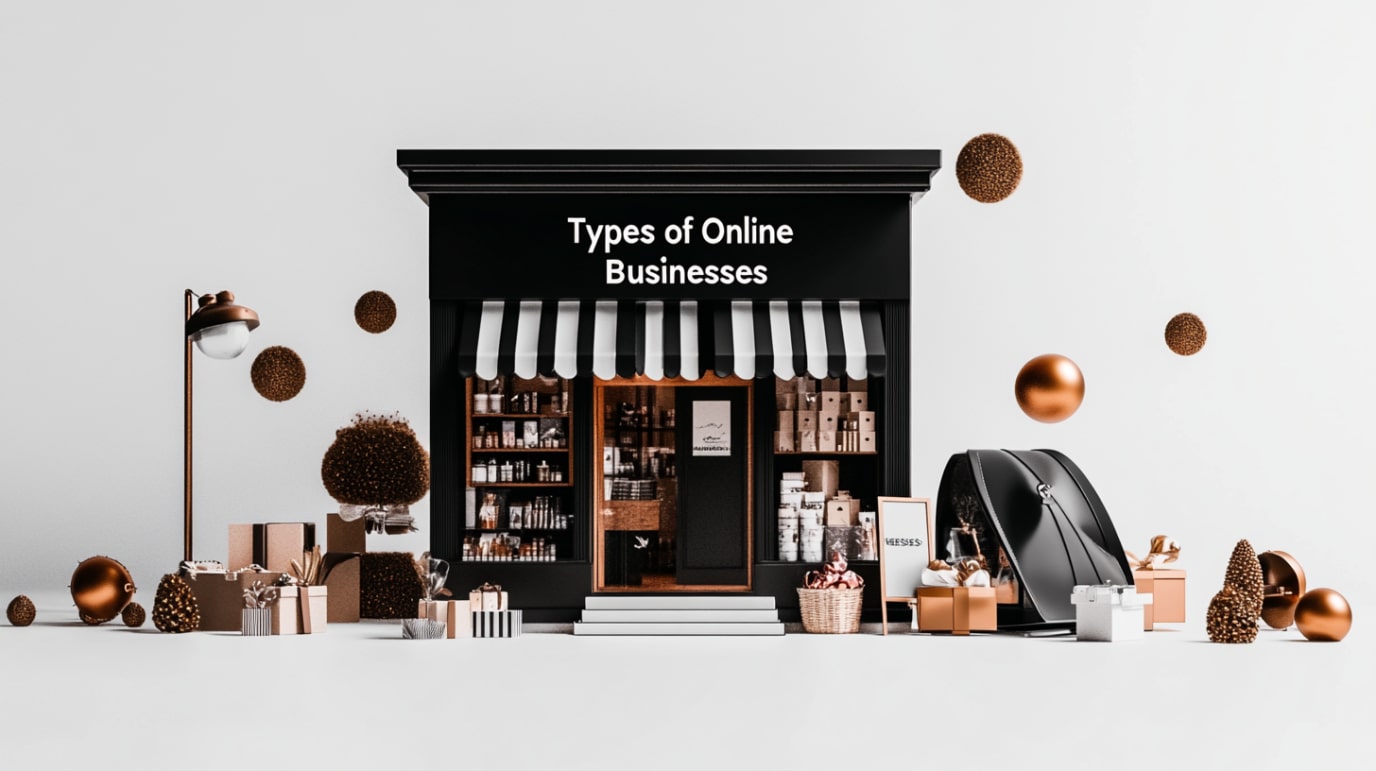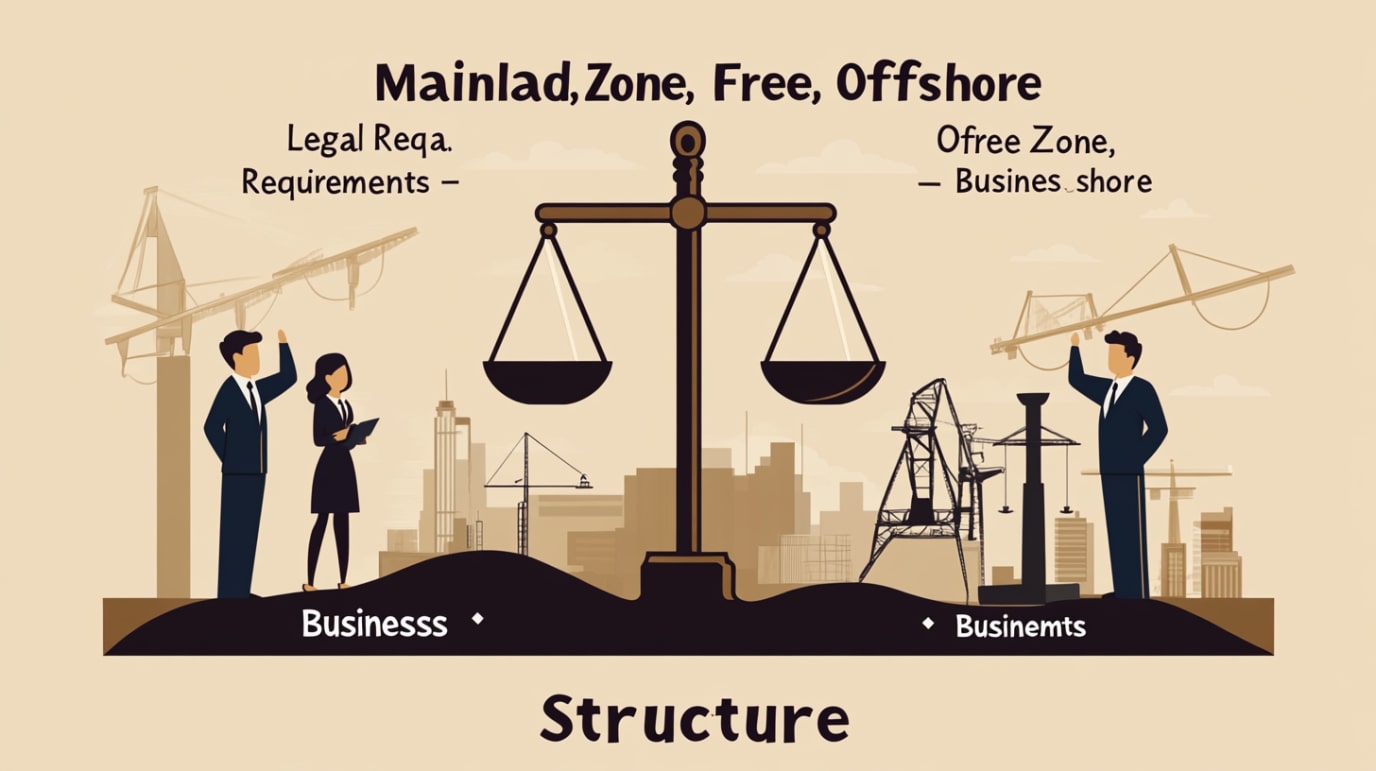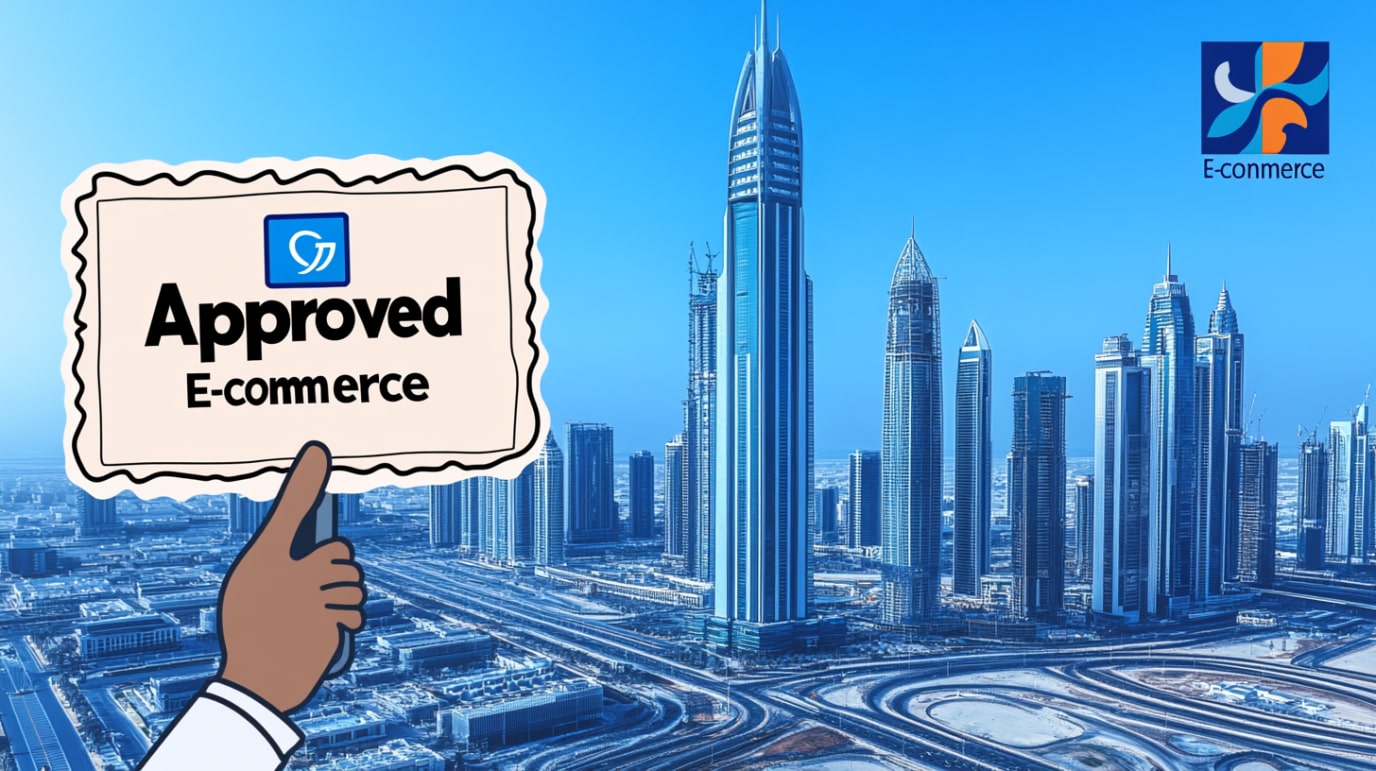Starting an online business in the UAE is indeed an opportune time, with Dubai being the world trade center. The UAE has an incredible internet penetration rate of 99%, which is among the highest in the world, thereby setting up a strong digital base for businesses. E-commerce contributes about 4.3% to the GDP of the UAE, and this share is expected to keep on growing with the increasing digitization of consumers.
Favorable regulations, a fast-growing digital infrastructure, and an entrepreneur-friendly ecosystem provide great potential for online business in the UAE. This guide walks you through all the fundamental steps of establishing and scaling a business in the UAE, providing you with information on markets, the legal aspects, marketing strategies, and tackling major challenges. Whether you are in e-commerce, digital services, or consulting, the UAE is a best bet for your digital success.
Understanding the Online Business Landscape in the UAE
Starting an online business in the UAE offers numerous advantages, thanks to its business-friendly environment and advanced digital infrastructure. Dubai, in particular, has solidified its position as a global hub for entrepreneurship and innovation, attracting both local and international businesses. Entrepreneurs benefit from a regulatory framework that supports ease of doing business, along with access to a diverse market, which is key for success in the competitive online business world.

Why Start an Online Business in the UAE?
Dubai and the UAE offer a highly business-friendly environment, providing incentives such as tax exemptions, access to free zones, and a transparent legal framework. The country’s strong economy, coupled with its reputation for technological innovation, makes it an ideal location for starting an online business. Online businesses benefit from scalability, flexibility, and low overhead costs, allowing entrepreneurs to run operations efficiently while tapping into a rapidly growing digital market.
Trends in Online Business in the UAE

The UAE’s online business landscape is booming. E-commerce is growing at a rapid pace, driven by consumer demand for convenience and variety. Along with e-commerce, digital marketing is gaining traction as businesses seek to expand their reach. Other rising trends include online education and coaching services, freelancing and consulting businesses, and subscription-based services such as meal kits or beauty product boxes—each offering unique opportunities for entrepreneurs to tap into niche markets.
Types of Online Businesses That Perform Well in Dubai and UAE

Several types of online businesses are thriving in Dubai and the UAE. E-commerce stores, especially those targeting niche markets or offering luxury products, are incredibly popular. Digital marketing agencies are in high demand, given the country’s rapidly growing digital space. Online consulting and coaching services also perform well, as individuals and businesses seek expertise in areas like business development, wellness, and digital transformation. SaaS (Software as a Service) companies are increasingly successful due to their scalable business model, while content creation—through platforms like YouTube, blogs, and social media—continues to be a powerful way for entrepreneurs to build an online presence and generate income.
In this section, you’ll gain a deeper understanding of the opportunities available in the UAE’s digital economy and the types of online businesses that are most likely to succeed.
Legal and Regulatory Requirements for Starting an Online Business in the UAE

Starting an online business in the UAE requires careful consideration of the legal and regulatory framework. Understanding the different business structures, securing the necessary licenses, and complying with tax and financial regulations are crucial steps to ensure your business operates legally and efficiently. In this section, we’ll cover the essential legal requirements you need to navigate to establish a successful online business in Dubai and the UAE.
Choosing the Right Business Structure
When starting an online business in the UAE, one of the first decisions you’ll need to make is choosing the right business structure. The UAE offers three main types of business structures: Mainland, Free Zone, and Offshore.
- Mainland businesses allow you to operate anywhere in the UAE and engage with the local market, but they often require a local sponsor or partner.
- Free Zone businesses provide 100% foreign ownership and are ideal for businesses focusing on international markets, though they are restricted from doing business directly with the UAE market without a local distributor.
- Offshore businesses are best suited for entrepreneurs who need to create an international business structure, especially for holding and investment purposes, but they cannot engage in activities directly within the UAE market.
Each structure has its pros and cons, depending on your business model and target market, so it’s important to carefully evaluate which option best suits your online business.
Obtaining Licenses and Permits

To legally operate an online business in Dubai and the UAE, obtaining the appropriate licenses is essential.
- E-commerce License: If you plan to run an online store, you’ll need an e-commerce license. This license permits you to sell goods and services online within the UAE and internationally.
- Digital Marketing and Consulting License: For businesses offering digital marketing services or consulting, a professional license is required. This is crucial if you’re offering services like SEO, PPC management, or social media marketing.
- The application process for obtaining a business license in the UAE involves submitting an application to the Department of Economic Development (DED) or the relevant Free Zone authority, providing details about your business, and completing any necessary paperwork. The process is generally straightforward, but it’s important to ensure that you comply with all the requirements to avoid delays.
Registering Your Domain and Trademark
Securing a domain name for your online business is a critical step. Make sure the domain name reflects your business and is easy to remember. Many businesses in the UAE also choose to register a trademark to protect their brand identity. Trademarking your brand name or logo ensures that your intellectual property is protected and prevents others from using it without your permission. The UAE offers a well-established system for registering trademarks through the Ministry of Economy, which can safeguard your online business’s brand from infringement.
Tax and Financial Considerations
The UAE is known for its tax-friendly environment, but there are still some financial and tax considerations to be aware of:
- VAT: The UAE introduced VAT at 5%, which applies to goods and services sold in the UAE. Online businesses must register for VAT if their annual turnover exceeds the threshold (currently AED 375,000).
- Tax Exemptions in Free Zones: Businesses set up in Free Zones often benefit from tax exemptions, including no VAT or income tax for a certain number of years, making them an attractive option for many online business owners.
- Bank Accounts: Once your business is established, you’ll need to open a business bank account in the UAE. You’ll need to provide relevant documentation, including your trade license and business plan.
- Financial Reporting and Bookkeeping: It’s essential to maintain proper financial records for your online business, as the UAE requires compliance with financial regulations, especially for VAT reporting and annual financial statements. Many entrepreneurs opt to hire professional accountants or use accounting software to keep track of their finances.
By understanding and complying with these legal and financial requirements, you’ll ensure that your online business operates smoothly and remains fully compliant with UAE laws and regulations.
Setting Up Your Online Business: Step-by-Step Guide
Starting an online business in Dubai can be an exciting and rewarding venture, but it requires careful planning and execution. In this section, we’ll guide you through the essential steps to set up your online business, from conducting market research and building your website to creating a strong brand identity and establishing effective marketing channels.
Market Research and Business Planning

Before diving into the operational aspects of your online business, it’s crucial to understand the market dynamics and craft a solid business plan.
- Conducting Market Research: Start by gathering data on consumer behavior, market demand, and online business trends specific to Dubai and the UAE. This research will help you understand what products or services are in demand and identify the best market segments to target.
- Identifying Your Target Audience and Defining Your Niche: Clearly define your target audience and niche to ensure your business caters to specific customer needs. By focusing on a niche market, you can avoid overwhelming competition and create a tailored marketing strategy.
- Competitor Analysis and SWOT: Analyze your competitors in Dubai’s online market by evaluating their strengths, weaknesses, opportunities, and threats (SWOT analysis). This process will help you differentiate your business and highlight areas where you can offer unique value.
Building Your Online Presence
The foundation of your online business is your website. Your website should not only reflect your brand but also provide a seamless experience for users.
- Choosing the Right Website Platform: Selecting a website platform is a crucial decision. Options like Shopify, WordPress, and Wix each offer unique features, so choose one that aligns with your business model (e-commerce, service-based, etc.). Shopify is great for e-commerce, while WordPress offers more flexibility for blogs and content-driven websites.
- Designing a User-Friendly and Mobile-Optimized Website: Ensure your website is user-friendly and mobile-optimized, as many users in Dubai access online content via smartphones. A responsive, easy-to-navigate website will improve user engagement and drive conversions.
- Setting Up an E-Commerce Store or Service-Based Platform: If you’re selling products, set up an e-commerce platform with features like shopping carts, product pages, and inventory management. For service-based businesses, ensure your website clearly communicates your services and allows customers to book appointments or contact you easily.
- The Importance of a Secure Payment Gateway: A secure payment gateway is essential to ensure your customers feel safe when making transactions. Integrate trusted payment systems like PayPal, Stripe, or local UAE payment solutions to ensure seamless and secure transactions.
Building a Brand Identity

Creating a strong brand identity is key to standing out in the competitive online market.
- Creating a Compelling Brand Story: Your brand story helps connect emotionally with your customers. Share your journey, values, and the reason behind your business to make your brand more relatable and memorable.
- Designing Your Logo and Choosing Brand Colors: Your logo is the face of your business. Invest time in creating a memorable logo and choose brand colors that reflect your business’s personality. Colors play a psychological role in consumer decision-making, so choose wisely.
- Building Trust with Your Audience: Trust is essential for converting online visitors into customers. Use customer reviews, testimonials, and case studies to demonstrate your reliability. Social proof like positive feedback and ratings can significantly boost credibility.
Setting Up Marketing Channels
To drive traffic and generate leads, it’s important to establish effective marketing channels.
- Social Media Marketing Strategies: Platforms like Instagram, Facebook, and LinkedIn are powerful tools for reaching your audience in Dubai. Tailor your content to each platform, engage with followers, and use targeted ads to increase your visibility.
- Search Engine Optimization (SEO): Implement SEO strategies on your website to ensure better visibility on search engines like Google. Focus on keyword optimization, creating high-quality content, and obtaining backlinks to rank higher in search results.
- Paid Advertising Options: Invest in paid advertising to accelerate your growth. Google Ads and Facebook Ads are effective options to increase website traffic and drive conversions. Tailor your ad campaigns to reach the right audience using targeted keywords and demographics.
- Email Marketing Campaigns for Lead Nurturing: Email marketing allows you to nurture leads and convert them into loyal customers. Use email campaigns to provide value through newsletters, promotions, and personalized offers.
By following these steps, you’ll lay a strong foundation for your online business, ensuring that it is well-positioned for success in Dubai’s competitive digital market.
Financial Management and ROI for Online Businesses in Dubai

Understanding financial management and calculating return on investment (ROI) is crucial for the sustainability and growth of your online business in Dubai. This section will guide you through the key financial aspects of running an online business, from estimating startup costs to understanding ROI and managing payment processing. Proper financial planning can help you optimize your resources and ensure your business is profitable in the long run.
Estimating Start-up Costs for an Online Business
Starting an online business in Dubai comes with several upfront costs that you’ll need to plan for.
- Basic Expenses: Key initial expenses include website development, hosting fees, marketing, and business licensing. Whether you’re building a custom website or using a platform like Shopify or WordPress, you will need to budget for design, development, and ongoing hosting costs. Additionally, securing licenses and permits is a must to operate legally in the UAE.
- Optional Expenses: Depending on your business model, you may incur costs for employee wages, office space (if you choose to operate outside your home), and inventory stock for e-commerce businesses. These expenses can vary depending on the scale of your operations.
- Cost of Using Third-Party Platforms: Many online businesses use third-party services like Shopify, PayPal, and Stripe for payment processing and e-commerce hosting. These platforms come with subscription fees and transaction charges, so it’s important to factor these into your financial planning. For instance, Shopify charges monthly fees for using its platform, and PayPal takes a percentage of each transaction.
Understanding ROI for Online Businesses in Dubai
ROI is a key metric that determines the profitability of your online business. Knowing what to expect and how to measure ROI will help you assess the performance of your business and identify areas for improvement.
- Expected ROI for E-Commerce Businesses in Dubai: E-commerce businesses in Dubai generally expect a solid ROI, with margins ranging based on product category and business model. High-end products and niche markets may have higher margins, but competition can be stiff. On the other hand, mass-market e-commerce stores might have lower margins but higher sales volume.
- ROI Benchmarks for Digital Marketing and Consulting Businesses: For digital marketing agencies and online consulting businesses, ROI can vary depending on the service offerings. For instance, paid advertising campaigns, search engine optimization (SEO) services, and social media management can generate impressive returns, typically between 10%-30% in the first year if managed well.
- How to Track ROI with Tools Like Google Analytics and CRM Systems: Tracking ROI is essential for understanding the success of your online efforts. Tools like Google Analytics can help you monitor traffic, conversions, and user behavior. CRM (Customer Relationship Management) systems can also track customer interactions and sales, giving you an overview of how your marketing efforts are translating into revenue.
- Examples of Profitable Online Business Models: E-commerce, digital marketing, subscription-based services, and SaaS (Software as a Service) are examples of profitable online business models in Dubai. By choosing the right business model and carefully tracking your investments and returns, you can optimize your strategy for maximum profitability.
Payment and Transaction Processing in the UAE
Managing payments and transactions efficiently is vital for online business success.
- Setting Up Local Payment Methods: To cater to local customers, it’s essential to set up payment methods widely used in the UAE, such as PayTabs, Telr, or Stripe. These payment platforms support AED (Arab Emirates Dirham) and ensure smooth transactions within the UAE market.
- Dealing with Currency Conversion: If your business targets international customers, you may face currency conversion challenges, especially when dealing with USD, EUR, or other global currencies. Many payment gateways offer automatic conversion tools, but it’s important to be aware of exchange rates and transaction fees when conducting cross-border payments.
- Offering Multiple Payment Methods for International Customers: To expand your global reach, it’s crucial to provide multiple payment options. Offering credit card payments, PayPal, and other international payment systems will help build trust with overseas customers and improve your chances of securing global sales.
By carefully managing your startup costs, tracking ROI, and selecting the right payment methods, you’ll be able to effectively manage the financial health of your online business in Dubai and ensure long-term success.
Scaling Your Online Business in Dubai
Scaling your online business in Dubai requires enhancing efficiency, broadening your customer base, and optimizing operations. This section explores strategies to automate processes, expand your reach, and build a strong team for sustainable growth.
Automating Business Processes
To save time and improve efficiency, automating tasks is key.
- Using Tools for Email Marketing, Customer Service, and Inventory Management: Platforms like Mailchimp for email campaigns, Zendesk for customer service, and TradeGecko for inventory management can streamline operations and reduce manual work.
- Integrating Software for Billing, Shipping, and Customer Communication: Use software like QuickBooks for accounting, ShipBob for logistics, and Intercom for customer support to automate billing, shipping, and communication.
Expanding Your Marketing Reach
Reaching a larger audience is essential for scaling.
- Utilizing Affiliate Marketing Programs: Partnering with affiliates allows you to tap into new markets and expand with minimal risk.
- Expanding to Other GCC Countries or Internationally: Leverage Dubai’s strategic location to grow in GCC countries or globally.
- Collaborating with Influencers and Bloggers: Work with Dubai-based influencers and bloggers to increase your brand visibility and reach targeted audiences.
Hiring and Building a Team

As your business grows, building the right team is vital.
- Hiring Freelancers or Employees: Use platforms like Upwork and Fiverr to hire specialists for tasks like web design or digital marketing.
- Outsourcing Services: Outsourcing tasks can help you scale quickly without heavy overhead costs.
- Importance of a Local Team: A local team in Dubai ensures you navigate local regulations and understand consumer behavior, adding valuable insights for growth.
By implementing these strategies, you can efficiently scale your online business in Dubai, expanding your reach and operational capacity.
Key Challenges and How to Overcome Them
Starting and growing an online business in Dubai comes with its set of challenges. From intense competition to legal and market uncertainties, entrepreneurs must be prepared. This section highlights key challenges and offers strategies to overcome them.
Navigating Competition
Dubai’s online business market is highly competitive, making differentiation crucial.
- How to Differentiate Your Online Business: Focus on a unique value proposition (UVP) to stand out. Whether it’s niche products, better customer service, or exclusive offers, make sure your brand offers something competitors don’t.
- Building Customer Loyalty and Repeat Business: Offer personalized experiences, loyalty programs, and high-quality products/services to encourage repeat business.
- Utilizing Excellent Customer Service and Fast Delivery Times: Providing quick responses to customer inquiries and ensuring fast, reliable delivery can significantly boost customer satisfaction and retention.
Legal Challenges and Compliance
Operating an online business in Dubai requires strict adherence to local laws and regulations.
- Adhering to UAE Business Laws and Online Regulations: Familiarize yourself with the UAE’s laws regarding business licenses, e-commerce regulations, and online consumer protection.
- Protecting Intellectual Property (IP) and Privacy Concerns: Safeguard your business’s intellectual property by trademarking your brand and ensuring privacy policies are in place to protect customer data.
- Dealing with Cybercrime and Fraud Prevention: Invest in cybersecurity measures to prevent fraud and protect sensitive data. Work with trusted payment gateways and implement secure browsing protocols.
Dealing with Market Volatility
The UAE market is dynamic, and entrepreneurs must manage risks effectively.
- How to Manage Financial Risks in an Online Business: Diversify your revenue streams and maintain an emergency fund to safeguard against unforeseen financial risks.
- Staying Up-to-Date with Market Trends in Dubai: Follow industry news, attend conferences, and leverage data analytics tools to keep your business aligned with market trends.
- Adapting to Changes in Consumer Behavior and New Regulations: Be flexible and adjust your offerings as consumer preferences change. Stay updated on new regulations and adapt quickly to remain compliant and competitive.
By proactively addressing these challenges, you can create a more resilient online business in Dubai, ensuring long-term success in a competitive and ever-changing market.
Marketing Your Online Business in the UAE
Marketing your online business effectively in the UAE is essential for growth. Dubai offers numerous opportunities for digital marketing, from influencer collaborations to SEO and paid advertising. Let’s explore how to promote your online business in this competitive market.
Leveraging Influencer Marketing in Dubai

Influencer marketing plays a significant role in reaching Dubai’s diverse and engaged audience.
- How to Collaborate with Influencers to Reach a Local Audience: Partner with local influencers whose audience aligns with your brand. Ensure they have a strong presence in the UAE, particularly in your business niche. Collaborations can include product reviews, sponsored posts, or exclusive discount codes.
- Examples of Successful Influencer Marketing Campaigns in Dubai: Dubai-based campaigns, like those promoting luxury products or tourism, have proven to be successful. Influencers like Huda Kattan and Khalid Al Ameri have driven significant engagement through authentic, relatable content that resonates with their followers.
SEO and Content Marketing for Dubai-based Online Businesses
Optimizing your online business for search engines is crucial to increase visibility.
- Localizing Your Content for the UAE Market: Customize your website and content to reflect local preferences, languages (like Arabic and English), and cultural norms.
- How SEO Helps Your Online Business Rank Higher on Google: Implement on-page SEO strategies, such as keyword optimization for local terms and high-quality content that addresses the needs of your target market in the UAE. SEO helps increase organic traffic, bringing in potential customers who are searching for products and services like yours.
Paid Advertising Options
Paid advertising is an effective way to get quick exposure and drive sales.
- Google Ads, Facebook Ads, and Instagram Ads in the UAE: These platforms are highly effective for reaching customers in Dubai and the UAE. Google Ads helps you capture search intent, while Facebook and Instagram ads allow for targeted campaigns based on user interests, demographics, and behaviors.
- Budgeting Tips for Effective Paid Campaigns: Start small with your budget to test which ads perform best. Use analytics to measure your ROI and adjust your spending accordingly.
- Using Retargeting Strategies to Increase Conversion Rates: Retarget visitors who have interacted with your site but haven’t made a purchase. This keeps your brand top of mind and encourages users to complete the transaction.
Conclusion
Starting and growing an online business in the UAE offers immense opportunities, especially with Dubai’s business-friendly environment and the UAE’s growing digital landscape.
- Recap of the Steps to Start and Grow an Online Business in the UAE: From understanding the market to navigating legal requirements and implementing effective marketing strategies, following the outlined steps will set your business up for success.
- Encouraging Entrepreneurs to Take Advantage of Dubai’s Business-Friendly Ecosystem: Dubai’s favorable regulations, infrastructure, and access to international markets make it an ideal place for entrepreneurs to thrive.
- Final Thoughts on the Future of Online Businesses in the UAE: The future of online businesses in the UAE looks promising, with digital transformation continuing to grow across various industries.
- Call-to-Action: Steps to Take Today to Launch Your Online Business in Dubai: Start by registering your business, building an online presence, and implementing key marketing strategies. Take advantage of the UAE’s ecosystem and start your entrepreneurial journey today!










